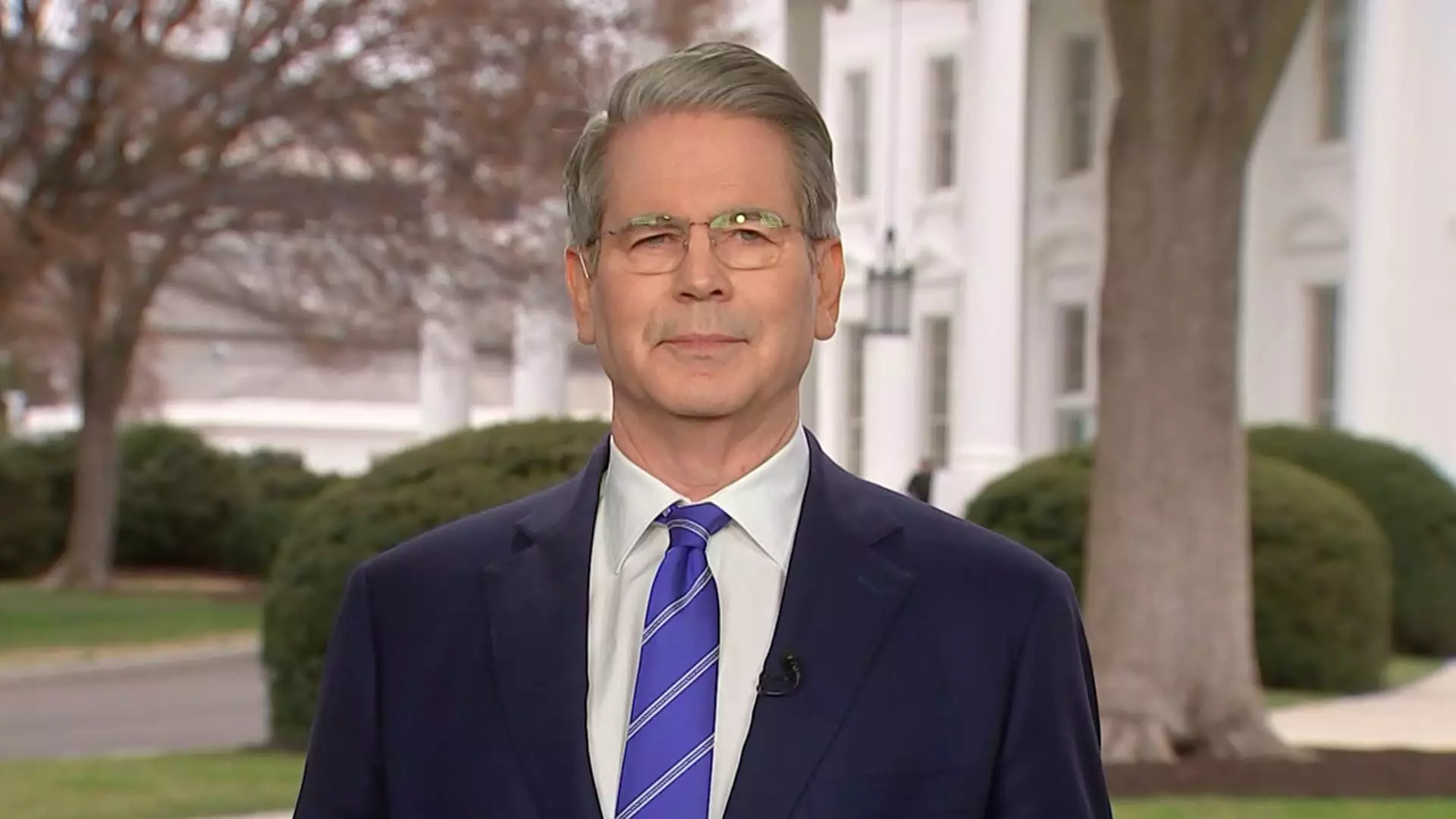The recent comments made by Treasury Secretary Scott Bessent provide an unsettling glimpse into the economic undercurrents shaping the current administration. While he touts the goal of averting a financial crisis through “sustainable” spending decisions, one must question the very foundation upon which these policies are built. The Trump administration’s cavalier approach to fiscal responsibility resembles a game of hot potato, with the risks of ballooning debt being pushed further down the line. Government spending surged dramatically, raising the specter of an imminent fiscal crisis—an unsettling prospect that manageably outstrips the optimism touted by Bessent.
High-Stakes Game of Efficiency
Creating the Department of Government Efficiency, helmed by none other than Elon Musk, may have sounded like a bold step in theory. However, it casts doubt on whether streamlining government jobs can genuinely address the broader economic malaise the nation faces. Musk’s track record suggests innovation, but vertical thinking isn’t necessarily a panacea for the entangled issues confronting federal agencies. Instead of massive cuts, there’s a pressing need for comprehensive reforms that support worker displacement while also ensuring the critical capabilities of these agencies remain intact. The complexity of government functions cannot be distilled down to a job-cutting exercise, and the rush to efficiency could compromise essential services.
The Illusion of Economic Stability
The reality starkly contrasts with the optimism espoused by Bessent. The early months of Trump’s presidency exposed a deficit crisis, as numbers never seen before flashed under February’s budget—a sobering warning sign. The volatility of the stock market only amplifies concerns that the assertion that these “corrections” are merely healthy is dangerously naive. Market corrections may be part of a “normal” cycle, but phrases like “pro-business policies” merely gloss over the sobering fact that the burden of recession often falls disproportionately on the working and middle classes, who maneuver through economic chaos with little protection.
The Myth of Unfettered Growth
One of Bessent’s most dubious assertions is that a tax overhaul combined with deregulation and energy security will yield long-term benefits for the markets. The notion that an unfettered pursuit of growth will automatically rejuvenate the economy is an argument grounded in discredited economic theory. History has shown us that deregulated markets, while superficially appealing, can lead to short-lived booms followed by catastrophic crashes—such as the 2008 financial collapse Bessent referenced. The misleading ideal of straight-line growth does not account for complex economic realities that have left millions struggling while wealth siphoned upward onto the back of feeble policies designed for extraction rather than inclusive prosperity.
Bracing for Uncertain Futures
Bessent’s reiterations of confidence in the economy may provide comfort to some, but they also inadvertently represent a detachment from the economic realities that most Americans face daily. As the administration hastily addresses uncertainty with slogans instead of tangible solutions, one must brace for unpredictable outcomes and challenges ahead. Without a sincere acknowledgment of the risks embedded in current policy trajectories, we risk spiraling into a crisis far worse than what Bessent claims to have averted. It seems that faith in economic philosophy is driving policy decisions rather than a genuine response to the pervasive inequalities affecting real people.

